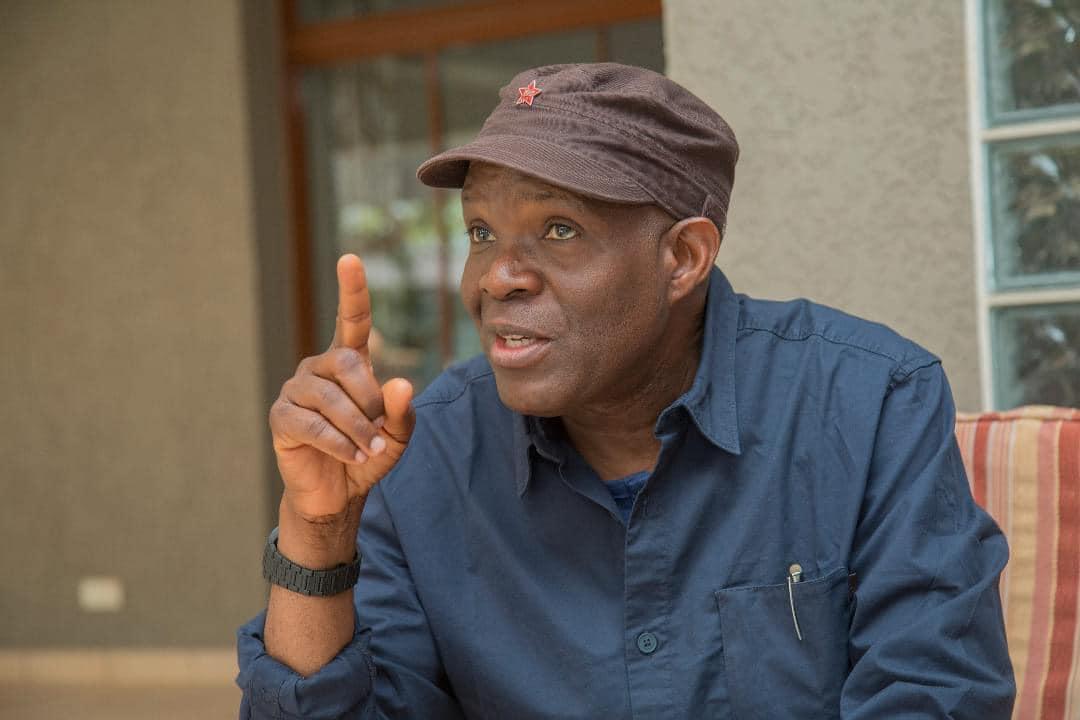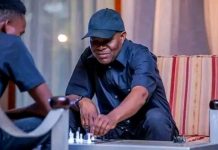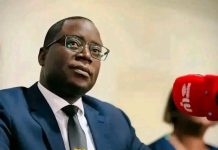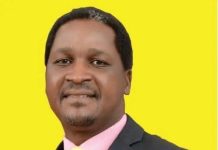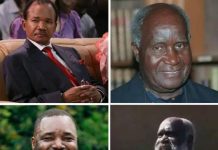Africa-Press – Zambia. SOCIALIST Party president Fred M’membe says it is shocking that UPND cadres can storm a radio station, stop a broadcast and yet no arrests made when they are known. He wondered if the UPND cadres were above the law as this is a very serious matter and a violation of a fundamental human right.
“It’s shocking that UPND cadres can storm a radio station, stop a broadcast and chase away some one being interviewed. This is what happened to EEP president Chilufya Tayali in Chingola. As if stopping the broadcast was not bad enough, they forced Mr Tayali out of Chingola. These cadres are known and are bragging about it. But no arrests!” Dr M’membe noted. “What type of law enforcement is this? Are UPND cadres above the law? What would be the situation if this was done by opposition cadres to a UPND leader? This not a small issue. It’s a very serious matter. It’s a violation of a fundamental human right – freedom of expression.” He said when someone is criticising the government for not living up to its promises, they are exercising their freedom of expression.
“Freedom of expression is the freedom for us all to express ourselves. It is the right to speak, to be heard, and to participate in political, artistic, and social life. It also includes the ‘right to know’: the right to seek, receive, and share information through any media,” Dr M’membe explained. “When you share your views or seek out information, online or off, you’re exercising your right to freedom of expression. When you criticise your government for not living up to its promises, you’re exercising your right to freedom of expression. When you question or debate religious, political, social or cultural practices, you’re exercising your right to freedom of expression. When you attend a peaceful protest or organise one, you’re exercising your right to freedom of expression.”
He noted that freedom of expression enables people to question government, which helps to keep them accountable. “The problems we all face are complex. If we cannot freely exchange ideas and information, then we are all deprived of the potential solutions,” Dr M’membe said. “Freedom of expression is fundamental to political dissent, diverse cultural expression, creativity, and innovation as well as the development of one’s personality through self-expression. Freedom of expression enables dialogue, builds understanding, and increases public knowledge. When we can freely exchange ideas and information, our knowledge improves, which benefits our communities and societies.”
He said questioning and debate are healthy as they lead to better policies and more stable societies. “You can’t say that is all too often the response of those in power to having their power challenged. To accept that certain things cannot be said is to accept that certain forms of power cannot be challenged,” Dr M’membe said.
He said freedom of expression is the lifeblood of democracy stressing that society needs it for protection against atrocities the government can place on citizens.
“Democracy is built on the right to dissent, on the right for people to hold opposing positions. Our society needs freedom of expression to protect us from the worst atrocities that our government can visit on its citizens. Does freedom of expression mean we can say whatever we like? While the right to freedom of expression is fundamental, it is not absolute. This means it can be limited in exceptional circumstances,” he noted.
“Without the freedom to offend, freedom of expression ceases to exist. Religions, governments, and flags cannot be harmed – only people can. That’s why human rights protects people – not ideas, states, or religions.” Dr M’membe said politicians and public officials must create an enabling environment for freedom of expression and not diminish it.
“…any restrictions on free speech should only protect people from harm, not governments from criticism. And it’s people with the least power who need the most protection. Censorship is a political tool and its advocates may cite religious orthodoxy or any other dogmatic belief to claim the moral high ground and silence or even murder those they disagree with,” said Dr M’membe. “But freedom of expression is so fundamental to each and every one of us – from civil society to journalists, educators, writers, artists, lawyers, and activists – that we all have an obligation to stand up for it. Including you and I. There’s really no such thing as the ‘voiceless’. There are only the deliberately silenced or the preferably unheard.”
For More News And Analysis About Zambia Follow Africa-Press


